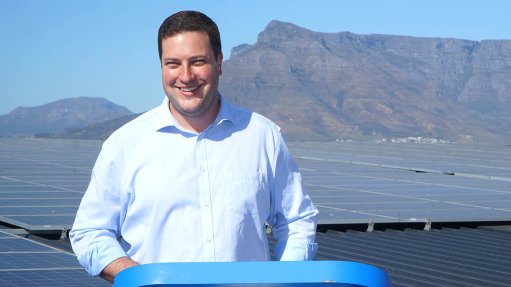Lower inflation to benefit economy more slowly in face of steep administered prices – Absa CIB
Lower inflation would help to reduce inflation expectations and inflation over the long term and, ultimately, lead to lower interest rates, which would benefit consumers by lowering debt-servicing costs and possibly provide space for stronger credit growth.
However, while financial services firm Absa Corporate and Investment Banking (CIB) agreed with the South African Reserve Bank (SARB) that lower inflation would provide benefits, fuel price inflation owing to low-base effects, steep administered price increases and rising food price inflation were likely to contribute to inflation remaining higher for longer than the SARB expected.
This was the view of Absa CIB economist Miyelani Maluleke during a briefing on the Absa CIB ‘Q3 2025 Perspectives’ report on September 4.
The SARB had proposed a scenario where the decision to anchor monetary policy with an inflation target of 3% a year, instead of the 4.5% target in place since 2017, would see inflation rapidly decline to about 3.3% in 2026 and 3% in 2027.
However, Absa CIB's view was that headline consumer price index (CPI) inflation could drift higher in the coming months.
Favourable base effects on fuel and portions of the food basket would unwind, which would drive up headline CPI inflation. Additionally, sharp hikes in electricity and water tariffs would add upward pressure, directly and through second-order effects, said Maluleke.
“We expect CPI inflation to rise to just above 4% by year-end. Absa has lowered its forecast for 2026 to 3.9%, or 0.5 percentage points lower, and for 2027 to 3.5%, or down by 1.1 percentage point, as we believe the SARB will, albeit slowly, be able to shift inflation expectations, and uncertainty remains high.”
Going forward, the bank expects the consumer environment to face headwinds in the near-term, which could already be seen from jobs data that had been flat for a while.
“Businesses indicated that they were trimming headcounts. In the near term, jobs will continue to be under pressure, which is evident from the hiring intentions of businesses. This will be a challenge for consumers, as inflation will tick up and eat into real, disposable income,” he said.
However, while Absa thought that inflation would remain higher for longer than the SARB anticipated, Maluleke noted that the bank forecast that space should open for interest rate cuts in 2027 and that, from 2027 to 2028, the country could see up to 100 basis points in interest rate cuts.
Meanwhile, while the external environment was uncertain, it showed some resilience as well, especially compared to the expectations of the impact of new US trade tariffs.
“Despite elevated trade tensions and uncertainty, the world economy is still expected to grow, with some growth estimates lifted in the past while, such as the IMF hiking its forecast for global growth to 3.1% for the year from its earlier forecast of 3%,” said Maluleke.
“Economic activity has looked more resilient than we expected at the time of our previous Quarterly Perspectives. Export commodity price moves have also largely favoured South Africa, and has delivered supportive terms of trade.”
However, ongoing trade policy uncertainty was a significant challenge for the country. For South Africa, more difficult relations with the US on trade and diplomacy remained a key risk, he added.
The value of exports to the US during the third quarter of the year was 17% lower than the prior quarter, while the value of exports to the rest of the world was only 2.7% lower than the previous quarter.
This was impacting different parts of the economy, with vehicle manufacturing and components seeing large declines in terms of exports. Iron-ore and steel were also under pressure from US tariffs, but the value of exports of these to the rest of the world also fell sharply in the second quarter, he noted.
“This has led to critical parts of the economy being less competitive, and this will continue to remain a challenge for the country.”
In the automotive manufacturing space, there was real concern about what damage the tariffs would do. There was also ongoing uncertainty around trade policy more broadly, making for a difficult environment, he said.
This may be part of the reason why, even though infrastructure services had improved and were stable, business confidence was not picking up. Business confidence was still low and investment by the private sector also remained low.
“This global uncertainty is a huge headwind for many real-economy businesses [in South Africa],” said Maluleke.
Article Enquiry
Email Article
Save Article
Feedback
To advertise email advertising@creamermedia.co.za or click here
Comments
Press Office
Announcements
What's On
Subscribe to improve your user experience...
Option 1 (equivalent of R125 a month):
Receive a weekly copy of Creamer Media's Engineering News & Mining Weekly magazine
(print copy for those in South Africa and e-magazine for those outside of South Africa)
Receive daily email newsletters
Access to full search results
Access archive of magazine back copies
Access to Projects in Progress
Access to ONE Research Report of your choice in PDF format
Option 2 (equivalent of R375 a month):
All benefits from Option 1
PLUS
Access to Creamer Media's Research Channel Africa for ALL Research Reports, in PDF format, on various industrial and mining sectors
including Electricity; Water; Energy Transition; Hydrogen; Roads, Rail and Ports; Coal; Gold; Platinum; Battery Metals; etc.
Already a subscriber?
Forgotten your password?
Receive weekly copy of Creamer Media's Engineering News & Mining Weekly magazine (print copy for those in South Africa and e-magazine for those outside of South Africa)
➕
Recieve daily email newsletters
➕
Access to full search results
➕
Access archive of magazine back copies
➕
Access to Projects in Progress
➕
Access to ONE Research Report of your choice in PDF format
RESEARCH CHANNEL AFRICA
R4500 (equivalent of R375 a month)
SUBSCRIBEAll benefits from Option 1
➕
Access to Creamer Media's Research Channel Africa for ALL Research Reports on various industrial and mining sectors, in PDF format, including on:
Electricity
➕
Water
➕
Energy Transition
➕
Hydrogen
➕
Roads, Rail and Ports
➕
Coal
➕
Gold
➕
Platinum
➕
Battery Metals
➕
etc.
Receive all benefits from Option 1 or Option 2 delivered to numerous people at your company
➕
Multiple User names and Passwords for simultaneous log-ins
➕
Intranet integration access to all in your organisation


















